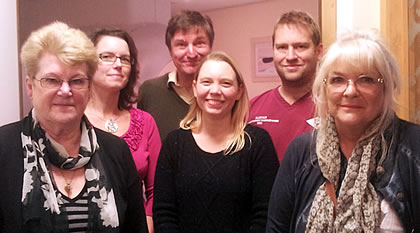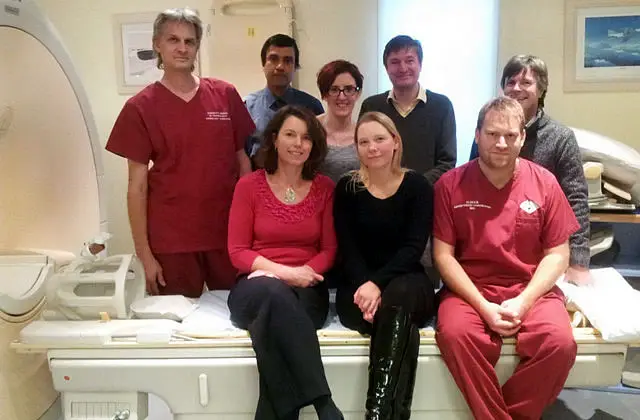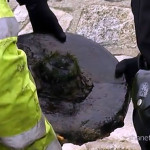A brand new neuroscience research project into the chronic pain condition, Fibromyalgia Syndrome (FMS), was launched at St Mary’s hospital on the Isle of Wight at the weekend.
This exciting project is a collaboration between the Island’s Radiology and Chronic Pain departments, as well as colleagues from Imperial College and University of Southampton University (who have given their time for free to help set the project up).
It’ll be exploring chronic pain, specifically in patients with Fibromyalgia Syndrome (FMS) and Chronic Fatigue Syndrome and putting some new research techniques into use.
Interview with Dr Lee
At the launch, we managed to grab some time with the project lead, Dr Gary Lee, who is Consultant Clinical Health Psychologist on the pain team.
Gary explained the project would allow proper research on Fibromyalgia Syndrome (FMS) and Chronic Fatigue Syndrome (CFS) to take place right here on the Isle of Wight.
The launch focused on the use of the MRI scanner to look at potential alterations in brain activity of people with the conditions and two members of the Patient Support Group with FMS agreed to take part in the scan.

How prevalent is the condition?
The number of residents on the Island diagnosed with FMS is hard to grasp, said Gary.
He has a database of at least 200 people with a diagnosis, but felt the actual figure was probably higher.
He’s hoping that the research project would allow the team to collect a definitive number of Islanders with FMS to add to national statistics.
Growing research interest in FMS
Gary explained how research into FMS and widespread chronic pain conditions is growing across the globe, adding that if scientists can understand the neurology that underpins the conditions it can help unlock the understanding of lots of other conditions too.
What makes the project taking place on the Island unique from other projects around the world is the focus on the increased central nervous sensitivity that many sufferers of the condition have.
Many people with FMS report an increased sensitivity to touch, sound, light and temperatures, so as an example, through the use of the MRI scanner researchers could see how the brain activity changes when the subject is exposed to strong light, sound or other factors.
How trauma and threats play a part
It’s well documented that some of the triggers for FMS include trauma to the body, long exposure to stress and post-viral infections.
Gary explained that the team on the Island will be specifically looking at the physiology of the nervous system to trauma and stress that patients might have been exposed to in the past (rather than their psychological responses).
Growing numbers of people with FMS
Asked whether the condition is more prevalent than in the past, Gary said he felt it was, but added that diagnosis has improved over the years which may be why we see a rise in numbers.
As Gary says at the end of the interview, the project is a clear statement for people with FMS that the condition is being taken seriously.
How to get involved
If you’d like to get involved with the project please email gary.lee@iow.nhs.uk
He pointed out that not everyone could go in the scanner, but there are going to be many parts to the project over the coming year that all can take part in.
Listen to the interview with Dr Gary Lee
Audio Player





